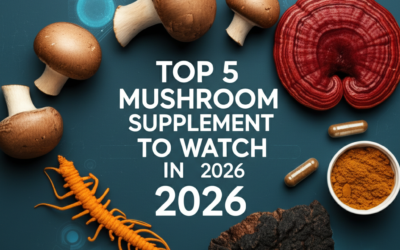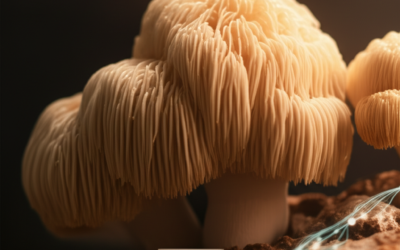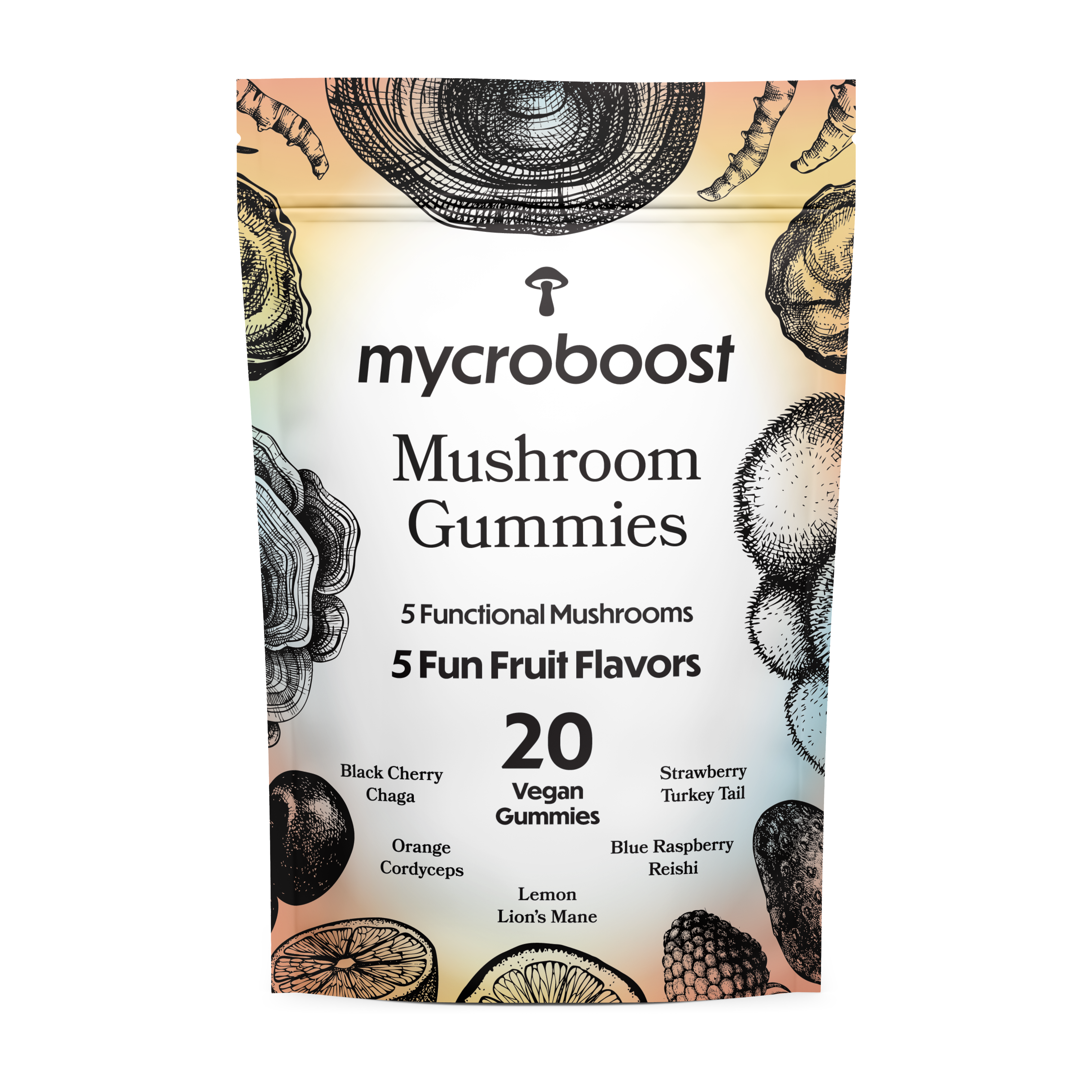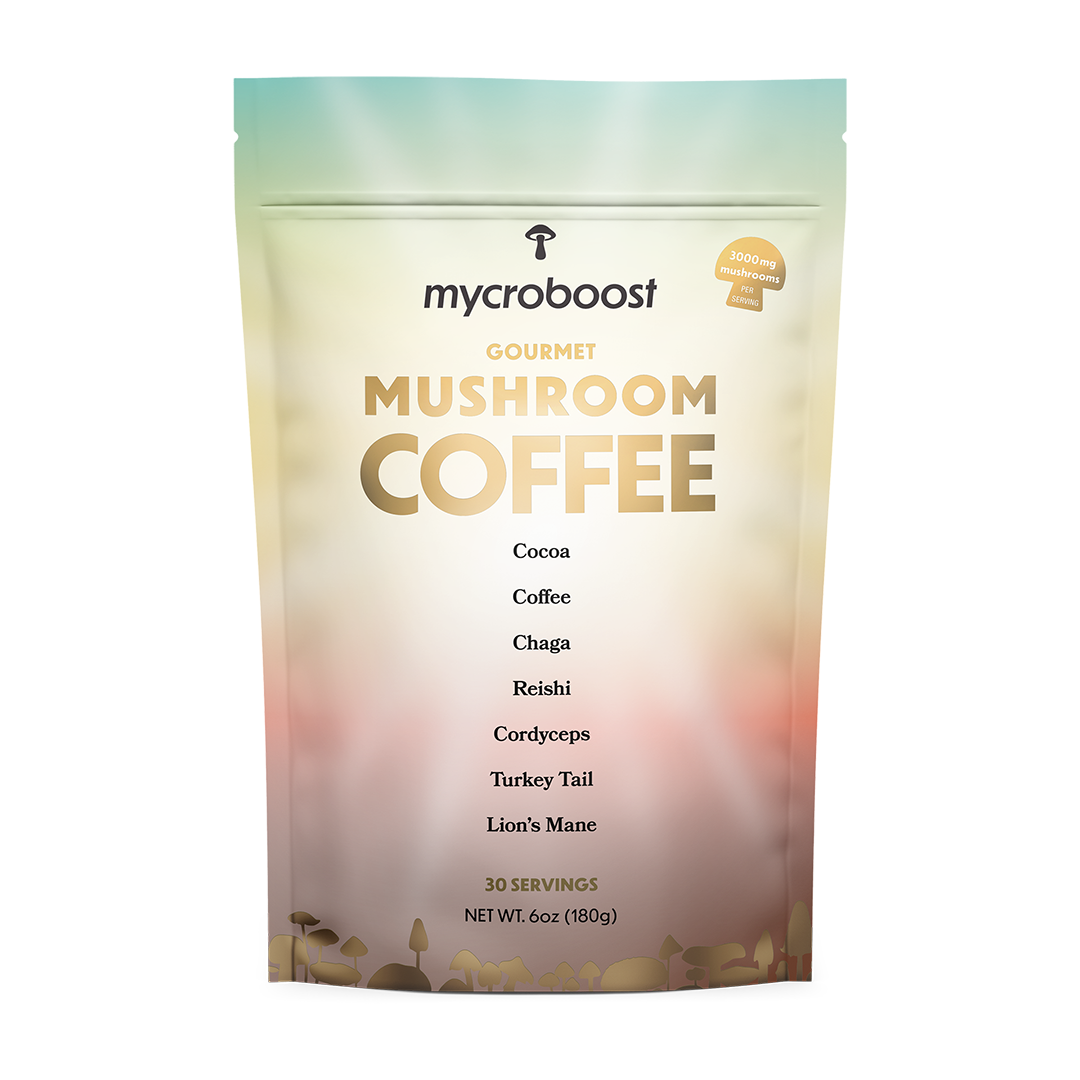Reishi mushrooms have grown so popular as a health supplement in the West that there’s an entire page on the Memorial Sloan Kettering Cancer Center website devoted to them. While they caught on more recently in the West, reishi mushroom benefits have been well-known to traditional Chinese medicine practitioners for millenia. According to Acupuncture Today, “Reishi is arguably the most important and most revered herb used by Asian people throughout history…. It is known to be among the most protective herbs in the world.” The Chinese name for reishi mushrooms is Ling Zh ,which means “supernatural fungus. Reishi was known as the “King of Herbs” the “10,000-year old mushroom” and “the mushroom of immortality” as well.
But what does the science say about this traditional folk remedy? Modern research has confirmed the efficacy of many traditional uses of reishi mushrooms. Reishi mushrooms contain more than 400 different bioactive compounds, and are rich in polysaccharides and triterpenoids, which are antioxidant as well as antiviral, antioxidant, antimicrobial and immunomodulatory. Here’s some of the science behind reishi mushroom supplements:
Reishi mushrooms can boost the immune system.
Reishi mushrooms have been found to increase the activity of certain immune cells, such as natural killer cells and T-cells, which play a key role in fighting infections and cancer.
Reishi mushrooms have anti-inflammatory properties and may reduce inflammation.
Reishi mushrooms contain compounds that can inhibit the production of inflammatory molecules. Because inflammation is linked with so many different diseases, from rheumatoid arthritis to IBS. Reducing inflammation in the body is often considered preventative care.
Reishi mushrooms may slow the growth of tumors.
This claim sounds outlandish, but it’s actually not. Some laboratory and animal studies have suggested that reishi mushrooms may have anticancer effects by inhibiting the growth and spread of cancer cells. There’s a good reason why the Memorial Sloan Kettering Cancer Center website has a section that explains reishi mushroom benefits and contraindications. (That said, always consult your doctor before taking any kind of mushroom supplement, especially if you are receiving treatment for a serious illness.)
Reishi mushrooms may improve energy.
In a double-blind, placebo controlled study of more than 130 patients, those who received reishi supplements reported decreased fatigue, reduced pain and major improvements in mood and energy.
Reishi may help with allergy symptoms.
This claim is another one that sounds too good to be true— but an article in the scientific journal Recent Patents on Inflammation & Allergy Drug Discovery noted that “reishi as an immune-nutraceutical with its unique array of compounds could play a major role in the treatment of histamine-mediated allergic responses,” and that the reishi mushroom “is an effective agent to restore the normal balance between the cytokines TH1 and TH2 immune states in patients with histamine-mediated allergic responses.”
While we need more research to fully understand the health benefits of reishi mushrooms, they are definitely (like all mushrooms) an amazing source of nutrition. The Journal of Phytopharmacology describes reishi mushrooms as “rich in macronutrients and minerals,” including potassium, calcium, magnesium, manganese and zinc, B-complex vitamins, amino acids and protein content higher than that of most vegetables.
Do Reishi Mushrooms Grow In The Wild? Are They Edible Raw?
Native to East Asia, reishi may be found today in North America and Europe, usually growing on dead trees and stumps of deciduous trees such as maples. They’re extremely rare in the wild, however, which is why historically they were reserved for medicinal use by Chinese royalty. Because of increasing global demand, commercial cultivation or reishi began in the 1970s. Today, reishi is sustainably grown on hardwood logs or sawdust.
Reishi mushrooms can be eaten raw, but usually aren’t, for several reasons. If you’ve ever tried reishi mushrooms raw, you know its texture and flavor are, shall we say, unappealing. Resihi is often described as tasting rubbery, cork-like and extremely bitter. Reishi tea is also bitter-tasting, which is why many prefer to consume it in powdered form through reishi mushroom supplements.
When considering where to buy reishi mushroom supplements, go with a trusted manufacturer with a solid reputation. Unfortunately, studies have shown that only 26.3% of reishi products tested actually contain what’s listed on the label. Make sure you buy reishi supplements that contain actual fruiting bodies, a.k.a. the stems and caps of the mushroom. Some makers use the mycelium in their supplements rather than the fruiting body, which makes the product cheaper, but contains less of the beneficial compounds you’re looking for.
Want to find out if reishi mushrooms can improve your energy and well-being? Check out our Mycroboost Immunity Mushroom Softgels, which contain 500mg of reishi extract along with turkey tail and chaga extract to supercharge your immune system. Our Mycroboost Medicinal Mushroom Gummies and Mycroboost Wellness Mushroom Softgel also feature reishi, along with a medley of functional mushroom extracts formulated to help your body and mind thrive.











